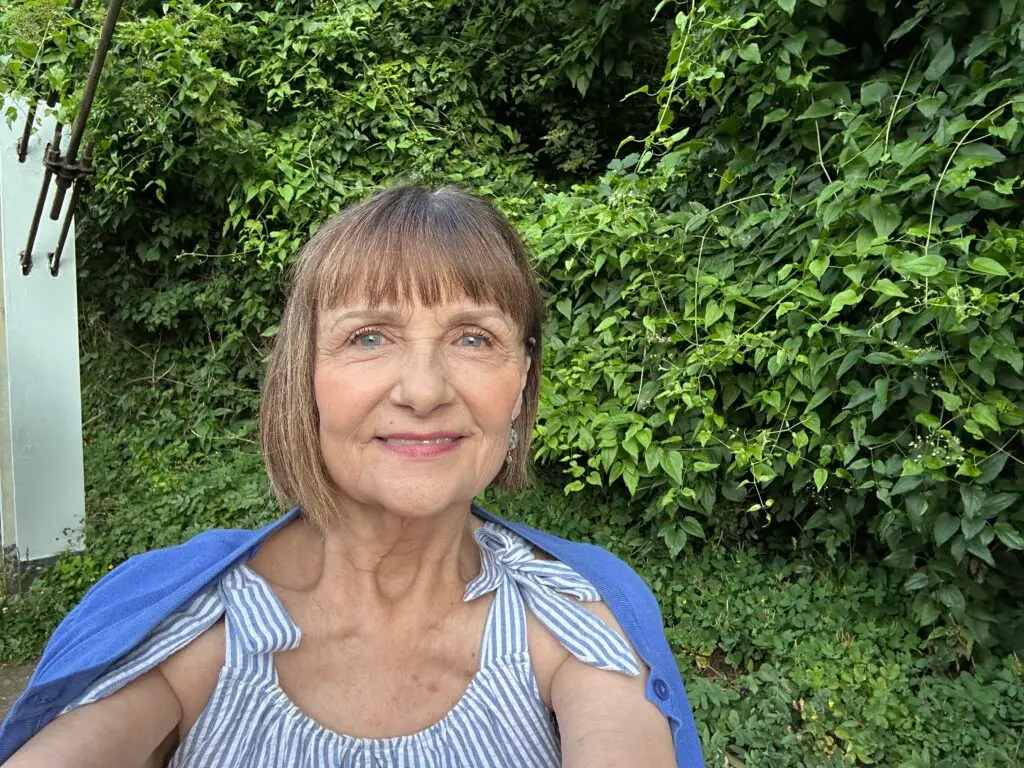France has one of the best healthcare systems in the world. High-quality care at affordable prices. A standard visit to a general practitioner (GP)? Just 25€, a fraction of what you’d pay in the U.S. Nearly 99% of the population is covered by health insurance, with most medical expenses reimbursed between 70% and 100%.
But for many expats, accessing healthcare in France can feel stressful. A new language. A different system. How do you describe your symptoms in French? How do you book an appointment? And what if you don’t have a Carte Vitale yet?
As a French language coach, I know how overwhelming this can feel. This guide will give you the key phrases, real-life dialogues, and confidence you need to handle doctor visits in France with ease.
Seeing a Doctor in France: How General Practitioners (GPs) Work for Expats
1. Private Medical Offices, Not Hospitals
Unlike in the U.S., where general practitioners are often affiliated with hospitals or large medical groups, most French médecins généralistes operate in cabinets médicaux (private medical offices). Some doctors work alone, while others share a practice with colleagues. House calls are still an option in France, especially for elderly patients.
You can book an appointment through Doctolib, one of the most widely used online platforms for scheduling medical visits in France.
2. The Waiting Room Experience
When you arrive at the cabinet médical, you’ll usually find a salle d’attente (waiting room). In smaller practices, there is often no receptionist—patients wait for the doctor to call them in. Unlike in the U.S., where a nurse may take your vitals first, in France, the doctor typically handles everything during the consultation.
3. Payment & Reimbursement
A standard GP visit costs 25€, payable by cash, check, or Carte Vitale (France’s health insurance card). If you are enrolled in Assurance Maladie (French social security healthcare), 70% of this fee is reimbursed automatically, and if you have private insurance (mutuelle), the remaining 30% is often covered. Expats without French insurance can pay upfront and request a reimbursement from private international health plans.
For more details on the reimbursement system, visit Ameli.fr
5 Common Doctor Visits in France – Daily French Dialogues for Expats (FR/EN)

Each section includes a real-life doctor-patient conversation in French, followed by an English translation.
1. The Flu (La Grippe)
- Médecin: Bonjour Monsieur Smith, comment puis-je vous aider aujourd’hui ? (Hello Mr. Smith, how can I help you today?)
- Patient: Bonjour docteur, je ne me sens pas bien depuis deux jours. J’ai de la fièvre, des courbatures et un mal de gorge. (Hello doctor, I haven’t been feeling well for two days. I have a fever, body aches, and a sore throat.)
- Médecin: Avez-vous aussi une toux ou des difficultés à respirer ? (Do you also have a cough or difficulty breathing?)
- Patient: Oui, j’ai une toux sèche et je me sens très fatigué. (Yes, I have a dry cough and I feel very tired.)
- Médecin: Ça ressemble à la grippe. Avez-vous pris quelque chose pour soulager les symptômes ? (That sounds like the flu. Have you taken anything to relieve the symptoms?)
- Patient: Juste du paracétamol, mais ça ne change pas grand-chose. (Just paracetamol, but it hasn’t helped much.)
- Médecin: Continuez le paracétamol toutes les six heures, reposez-vous bien et hydratez-vous beaucoup. Si les symptômes s’aggravent, revenez me voir. (Continue taking paracetamol every six hours, get plenty of rest, and drink a lot of fluids. If your symptoms get worse, come back to see me.)
- Patient: Merci docteur, je vais suivre vos conseils. (Thank you, doctor, I’ll follow your advice.)
2. Prescription Renewal – What to Say at the Doctor’s Office in France
- Médecin: Bonjour Madame Johnson, que puis-je faire pour vous aujourd’hui ? (Hello Mrs. Johnson, what can I do for you today?)
- Patient: Bonjour docteur, je viens pour renouveler mon ordonnance pour mon traitement contre l’hypertension. (Hello doctor, I’m here to renew my prescription for my high blood pressure treatment.)
- Médecin: D’accord, avez-vous ressenti des effets secondaires récemment ? (Okay, have you experienced any side effects recently?)
- Patient: Non, tout va bien, mais j’ai parfois des vertiges le matin. (No, everything is fine, but I sometimes feel dizzy in the morning.)
- Médecin: Je vais vérifier votre tension… Elle est un peu basse. Essayez de vous lever plus lentement le matin. Je renouvelle votre ordonnance, mais nous ajusterons peut-être le dosage si cela continue. (I’ll check your blood pressure… It’s a bit low. Try to get up more slowly in the morning. I’ll renew your prescription, but we might adjust the dosage if this continues.)
- Patient: Merci beaucoup, docteur. (Thank you very much, doctor.)
3. Allergy Consultation (Consultation pour allergie)
- Médecin: Bonjour Madame Taylor, quel est le problème aujourd’hui ? (Hello Mrs. Taylor, what’s the issue today?)
- Patient: Bonjour docteur, depuis une semaine j’ai le nez bouché, les yeux qui démangent et je n’arrête pas d’éternuer. (Hello doctor, for a week now I’ve had a blocked nose, itchy eyes, and I can’t stop sneezing.)
- Médecin: Cela ressemble fortement à une réaction allergique. Avez-vous changé quelque chose dans votre environnement récemment ? (That strongly resembles an allergic reaction. Have you changed anything in your environment recently?)
- Patient: Oui, j’ai récemment adopté un chat. (Yes, I recently adopted a cat.)
- Médecin: Il est possible que vous soyez allergique aux poils de chat. Je vais vous prescrire un antihistaminique. Essayez également de garder votre animal en dehors de votre chambre. (You might be allergic to cat hair. I’ll prescribe an antihistamine. Also, try keeping your pet out of your bedroom.)
- Patient: D’accord, je vais essayer ça. Merci beaucoup, docteur. (Alright, I’ll try that. Thank you very much, doctor.)
4. Minor Injury (Petite blessure)
- Médecin: Bonjour Monsieur Lee, qu’est-ce qui vous amène aujourd’hui ? (Hello Mr. Lee, what brings you here today?)
- Patient: Bonjour docteur, je me suis coupé profondément à la main en cuisinant. Ça saigne beaucoup. (Hello doctor, I deeply cut my hand while cooking. It’s bleeding a lot.)
- Médecin: Laissez-moi voir… La blessure est assez profonde. Je vais nettoyer et désinfecter la plaie, puis vous aurez besoin de quelques points de suture. (Let me see… The wound is quite deep. I’ll clean and disinfect it, and then you’ll need a few stitches.)
- Patient: Est-ce que je dois revenir pour enlever les points ? (Do I need to come back to have the stitches removed?)
- Médecin: Oui, revenez dans dix jours pour retirer les points. Gardez la plaie au sec et propre. (Yes, come back in ten days to remove the stitches. Keep the wound dry and clean.)
- Patient: Très bien, merci beaucoup docteur. (Alright, thank you very much, doctor.)
5. Back Pain (Douleur au dos)
- Médecin: Bonjour Madame Davis, que puis-je faire pour vous ? (Hello Mrs. Davis, what can I do for you?)
- Patient: Bonjour docteur, j’ai une forte douleur au bas du dos depuis hier matin. J’ai du mal à me pencher ou à marcher. (Hello doctor, I’ve had severe lower back pain since yesterday morning. I have trouble bending over or walking.)
- Médecin: Vous avez probablement une contracture musculaire. Avez-vous fait un mouvement inhabituel récemment ? (You probably have a muscle strain. Have you done any unusual movements recently?)
- Patient: Oui, j’ai soulevé une valise très lourde. (Yes, I lifted a very heavy suitcase.)
- Médecin: Je vais vous prescrire des anti-inflammatoires et des séances de kinésithérapie. En attendant, reposez-vous et évitez les efforts importants. (I’ll prescribe anti-inflammatory medication and physiotherapy sessions. Meanwhile, rest and avoid heavy lifting.)
- Patient: Merci beaucoup pour vos conseils, docteur. (Thank you very much for your advice, doctor.)
French-English Medical Vocabulary – Key Phrases for Your Doctor’s Visit (FR+EN)
General Medical Terms
| French Term | English Translation |
|---|---|
| Un médecin généraliste | General practitioner (GP) |
| Une ordonnance | Prescription |
| Une consultation | Appointment |
| La salle d’attente | Waiting room |
| Une prise de sang | Blood test |
| Une radio | X-ray |
| Le kiné (kinésithérapeute) | Physiotherapist |
| Les médicaments | Medication |
Common Symptoms & Conditions
| French Term | English Translation |
|---|---|
| La fièvre | Fever |
| Une toux sèche | Dry cough |
| Une toux grasse | Chest cough |
| Un mal de tête | Headache |
| Une fatigue intense | Severe fatigue |
| Des douleurs articulaires | Joint pain |
| Une infection urinaire | Urinary tract infection (UTI) |
| Une tension artérielle élevée | High blood pressure |
Useful Phrases at the Doctor’s Office
| French Phrase | English Translation |
|---|---|
| Comment vous sentez-vous aujourd’hui ? | How are you feeling today? |
| Quels sont vos symptômes ? | What are your symptoms? |
| Depuis combien de temps avez-vous ces symptômes ? | How long have you had these symptoms? |
| Avez-vous des antécédents médicaux ? | Do you have any medical history? |
| Prenez-vous des médicaments régulièrement ? | Do you take any medication regularly? |
| Je vais prescrire une prise de sang. | I will prescribe a blood test. |
| Revenez me voir si cela ne s’améliore pas. | Come back to see me if this doesn’t improve. |
If you want to go further, feel free to check my other blog post : mastering medical vocabulary.
Practice Your Pronunciation : Watch the YouTube Video With The 5 Dialogues ‘At The Doctor’
If you want to practice your pronunciation, try shadowing: listen to the phrases, repeat them out loud, and mimic the rhythm and intonation. This will help you sound more natural in real-life situations.
Need Help with French as an Expat?
Moving to France isn’t just about learning the language—it’s about feeling at home. I’m Déborah, a coach and serial expat, and I help people like you gain confidence in French. Let’s make French feel easy. Because it should be. 🇫🇷
Déborah, Your French Teacher
What happens on the 2nd of February in France?
February 2nd in France sits in the Carnival season. Americans know Mardi Gras. This is…
She Didn’t Just Move to Provence. She Learned to Belong.
Interview with Carolyne Kauser-Abbott, Founder of Perfectly Provence Some people fall in love with Provence…
Beyond Strasbourg & Colmar: 5 Unexpected French Christmas Markets to Visit in 2025
December in France is more than a season. It is an atmosphere (une ambiance). A…
Moving to Fontainebleau: The Real Story of Janice in France
When Janice Deerwester says “Bonjour!” on her YouTube channel, her Texas accent still peeks through….
Go to the Bank in France: The American Expat’s Guide to French Banking
Moving to France as an American means discovering new food, new culture, and—yes—new bureaucracy. One…
French Clothing Sizes in US: A Clear Guide for American Expats
Your first weeks in France are a string of small delights and quick puzzles. The…








